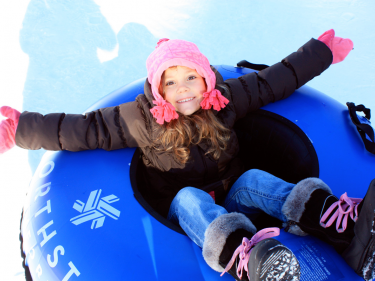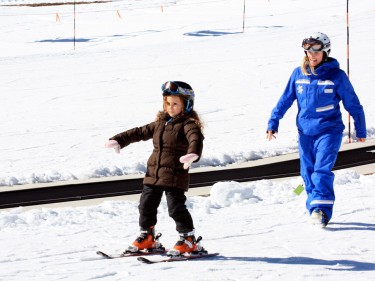Holiday Travel Tips: Traveling with an Infant or Toddler
.jpg) During the holidays, traveling with an infant or toddler can be a unique challenge, especially when it comes getting them to sleep. Marin parent coach, infant/toddler sleep researcher, and family therapist Angelique Millette has complied the following list of handy tips for traveling with children.
During the holidays, traveling with an infant or toddler can be a unique challenge, especially when it comes getting them to sleep. Marin parent coach, infant/toddler sleep researcher, and family therapist Angelique Millette has complied the following list of handy tips for traveling with children.
Angelique works throughout the Bay Area and across the country supporting families and helping them meet life's challenges. You can learn more about her and her events and classes at www.angeliquemillette.com.
It's that time of year, holiday travel time and many parents have been calling with questions about traveling with their babies and young children.
I've put together a list of tips and suggestions all tried-and-true by parents and their children:
- If your baby will be sleeping in a pack'n'play on your trip, in the week or two before your trip place your baby in her pack'n'play for sleeping (AM nap or bedtime) so she gets used to the new sleep space.
- Bring your baby or toddler's lovey, sleep sack (light and heavy weight depending upon the weather in the region you are visiting), unwashed crib sheet (familiar scent), and sound machine. Bring your toddler's blankies, stuffed animals, favorite bedtime books and pj's. This will help your little one to feel more secure in a new place and have reminders of home.
- Talk to your young child about traveling. If flying for the first time, talk to your child ahead of travel day and tell her about flying in an airplane. Bring along her favorite books, 1–2 new toys and favorite snacks/sippy cup.
- Try to schedule a flight or car trip during nap time or around your child's bedtime.
- If flying, for take off and landing, plan to help your child drink some liquid. Offer breast or bottle for your baby or a sippy cup with water or juice for older children. This will help to equalize the pressure in the middle ear.
- Some toddlers may not do well with new surroundings and may resist going to sleep or may be scared by new surroundings and faces. Try to help your toddler get used to a new sleep space by spending time together in the new room before bedtime.
- Try spending an additional 10-15 min with your child at bedtime the first few nights. This will mean that you want to start bedtime a little earlier than you normally would at home.
- If taking a long driving trip, pack a travel potty for your newly potty trained toddler. That way you won't ever be too far away from a toilet.
- If you need a crib, pack'n'play, highchair, or bouncy chair, think about renting from www.babysaway.com. They will deliver and set up in most major cities as well as the Hawaiian Islands. Bring crib sheets from home!
- If your infant or child sleeps better in a dark room or tends to wake up early with the morning light, bring garbage bags or dark fabric and tape over windows.
- If possible, schedule a few relaxing and restful vacation days in between busy, activity-packed vacation days. This is especially helpful after a busy travel day and right before a busy travel day.
- If traveling west to east, and staying for five days or less, keep your infant/child on the same time zone. This is called "vacation time" and looks a little like this: For a trip to New York, put your child to bed at 10 pm (7 pm PST) and child will sleep later in the morning 9 am (6 am PST). You may need to darken the room since the morning light may wake up your baby or child early.
- If traveling west to east, and staying more than five days, move your infant/child to the new time zone. Your child's body (their circadian rhythms) will naturally adjust on its own from the sunlight and you don't have to make this adjustment before the trip.
- If traveling east to west, it may be more difficult since your infant/child will naturally want to wake up earlier. The first full day in your new destination, try your best to stretch out your child's naps and push out bedtime. Do this each day that you are there, and after a few days your child will be adjusted.
- When you return from your trip, your first night home, do your same bedtime routine and try to help your infant/child adjust back to her regular bedtime. Remember that the time that it takes for your baby or child to adjust back to her natural clock and schedule depends upon the length of your trip and the total number of time zones travelled.
- While on vacation, if you room-shared or co-slept with your infant/child and you plan on moving your infant/child back to sleeping in her own room, be sure to spend a little more time with your child the first few nights at home. Your first night home, move your child back to her crib or bed. Your first few nights at home, help your infant/child get back to the sleep routine by following her typical bedtime routine.
Angelique Millette works throughout the Bay Area and across the country supporting families and helping them meet life's challenges. Angelique will be offering a toddler sleep class (12-36 mos) on December 20 from 10 am-noon at the Parents Place in San Rafael. Also, Angelique will be offering a live webinar, Fixing Sleep Regressions: Travel, Illness, Developmental Milestones, Teething on January 9 from 9:30–10:30 am. Register here. She also offers a variety of classes in Marin and San Francisco. You can learn more about her and her classes and services at www.angeliquemillette.com.
Photo: iStockphoto





